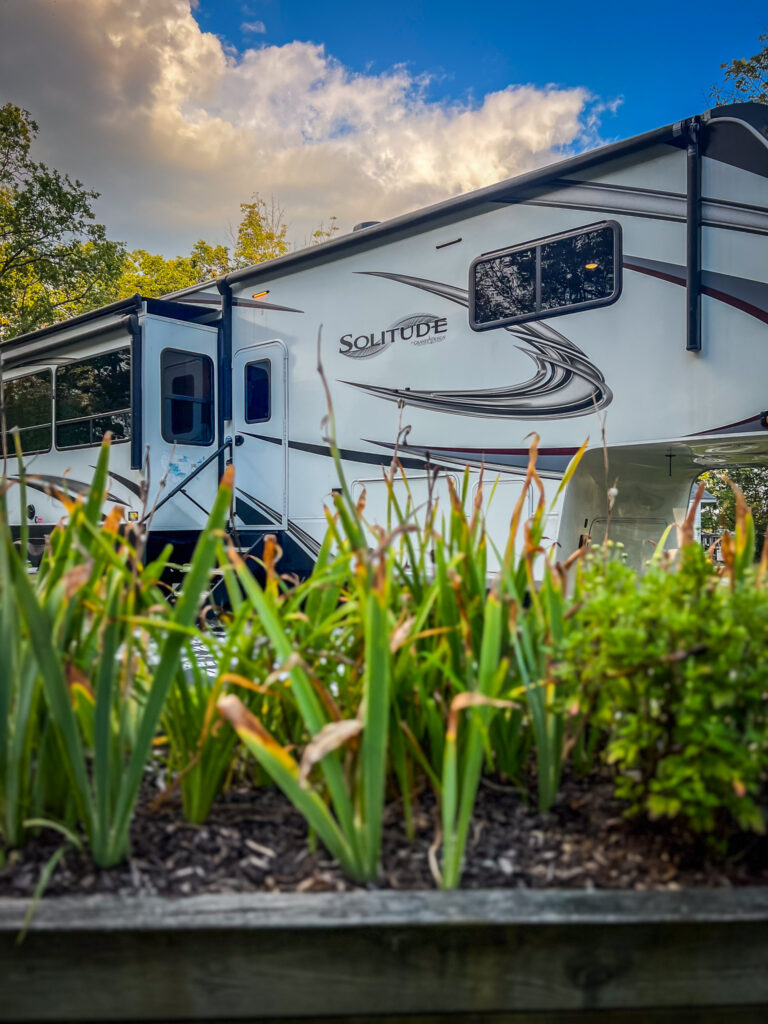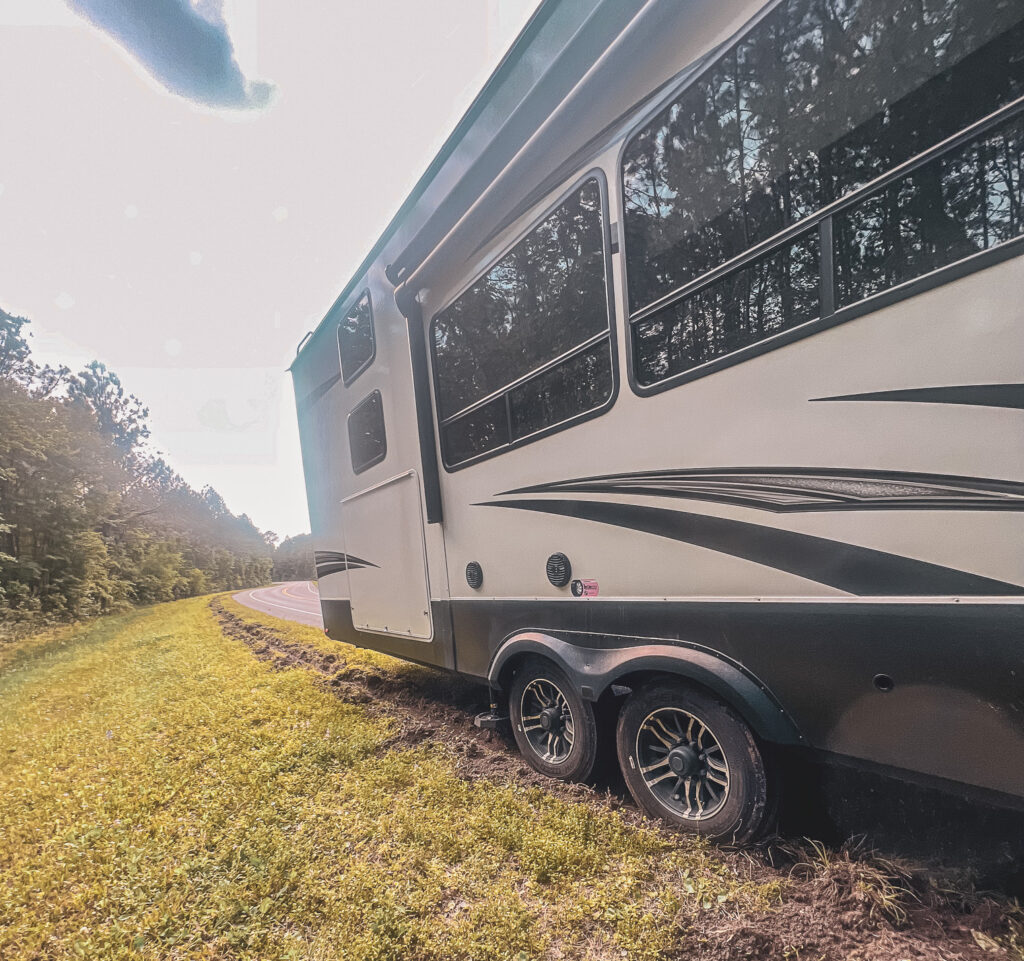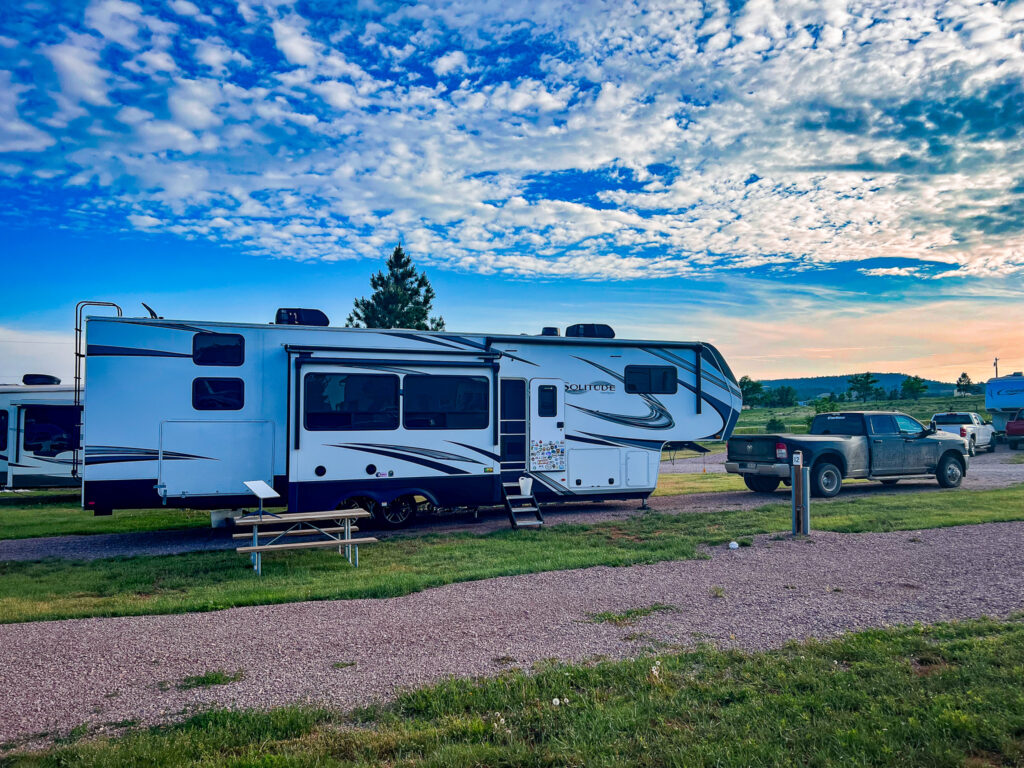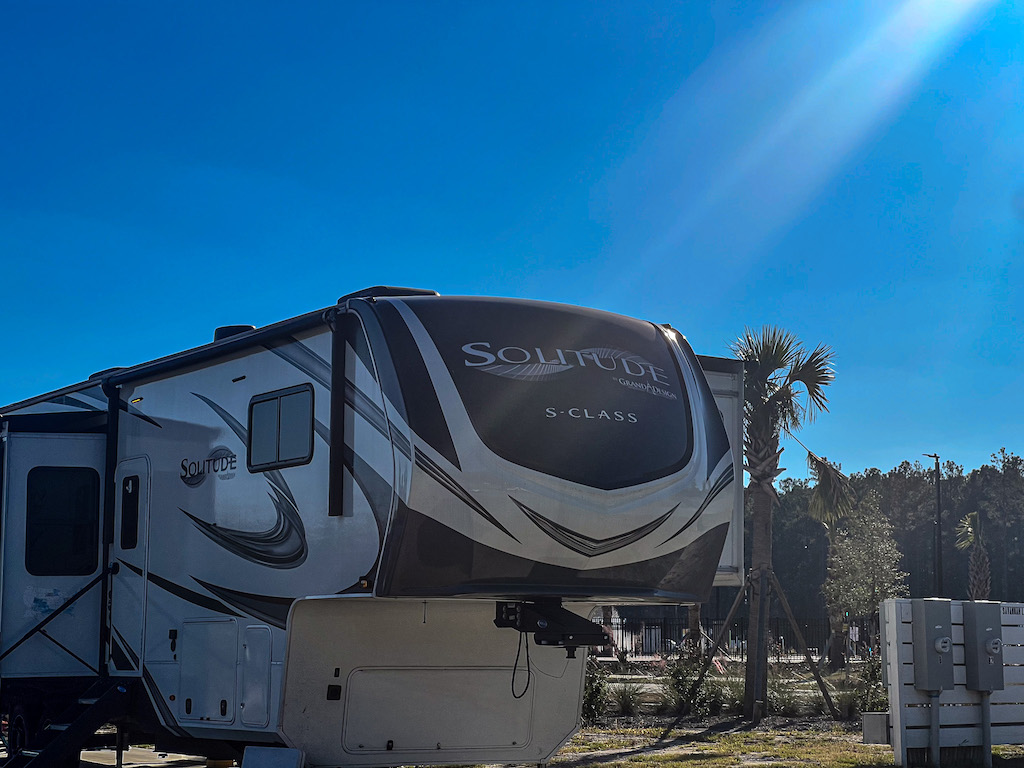Because your home has wheels — and standard RV insurance just won’t cut it.
Why This Matters
When we moved into our RV full-time, we thought RV insurance would be the easy part. We were wrong. Between full-time exclusions, coverage gaps, and jargon that makes your head spin, finding the right policy took time, research, and a few lessons learned the hard way. So we’re breaking it all down for you — simply, honestly, and from firsthand experience.
If your RV is your home, office, and adventure-mobile all in one, this guide is for you.
RV Insurance for Full-Timers Is Not the Same
If you’ve been weekend camping or part-timing in your RV, chances are your current insurance policy doesn’t fully cover full-time RV living. That’s because most basic RV policies treat your RV like a vehicle, not a residence.
Here’s what changes when you go full-time:
- You’re living in it full-time, which changes liability and coverage needs dramatically.
- You’re storing way more inside (electronics, prescriptions, tech, personal belongings).
- Your risk exposure is higher — more miles, more states, more chances of things going wrong.
- You may not have a permanent address, which impacts how your policy is structured.
Some insurers even exclude full-time RV use from coverage. Yikes.
What Basic RV Insurance Typically Covers
Here’s a breakdown of the standard RV policy — the kind many people assume is “good enough” (spoiler: it usually isn’t for full-timers).

- Liability coverage – Covers damage or injury if you cause an accident
- Collision – Pays for damages to your RV in a crash
- Comprehensive – Protects against theft, fire, weather damage
- Uninsured/Underinsured motorist – Covers your costs if the other driver can’t
- Roadside assistance – Varies greatly by provider
But here’s the thing: none of this covers you like a homeowner or tenant. Which you now are.
Must-Have RV Insurance Add-Ons for Full-Time RVers
To protect yourself fully, these are the non-negotiables:
1. Full-Time Liability Coverage
This is like homeowner’s liability for your RV. It protects you from claims if someone is injured in or near your rig (e.g., someone trips on your steps).
2. Personal Belongings Coverage
Standard RV policies don’t cover what’s inside very well. Think laptops, clothes, insulin pumps, tablets, toys, tools — all of it. Look for policies with at least $10,000–$20,000 in contents coverage (or more if you need it).
3. Emergency Expense Coverage
If your rig is in the shop for repairs after a covered loss, this helps pay for hotel stays, food, laundry, and more. Essential for full-timers who don’t have a backup home.
4. Medical Payments
Covers medical expenses for you or guests, even if you’re at fault. A must-have when living mobile.
5. Total Loss Replacement vs. Actual Cash Value
New RV? It might be best to go with total loss replacement. Older RV? You might be stuck with ACV, which pays less due to depreciation. Understand this distinction — it makes a huge difference if your rig is totaled.
6. Optional Add-Ons Worth Considering
- Vacation liability (if you part-time)
- Pet injury coverage
- Full windshield replacement
- Solar panel and awning coverage
- Extended towing & roadside for large rigs

Smart Questions to Ask Every Insurer
Don’t just click “Get Quote.” Grab the phone and ask:
- “Does this policy cover full-time RV living?”
- “What are the limits for personal belongings?”
- “Do you offer full-time liability protection?”
- “How does your claims process work — is it 24/7?”
- “Are custom additions like solar, Starlink, or composting toilets covered?”
- “What is your emergency expense allowance?”
Top RV Insurance Providers for Full-Time RVers
Here are some providers that other full-timers recommend (do your own research — rates and options vary by state):
🟢 Progressive
- Solid option for full-timers
- Good emergency and contents coverage
- Customizable and competitively priced
🟢 National General
- Known for full-time RV coverage
- Includes emergency expense and full-time liability
- Owned by Allstate
🟢 Good Sam Insurance Agency
- RV-specific focus
- Offers multiple carrier quotes
- Membership perks if you’re a Good Sam member
🟢 Roamly
- Great if you rent out your RV on platforms like Outdoorsy
- No sharing restrictions
- Transparent coverage, digital-first experience
Pro Tip: Don’t just go with your auto insurance company by default. Most don’t understand RV full-timing and may not offer what you need.
Our Personal Experience

We’ve been on the road full-time since 2021. Our insurance needs changed quickly. We wanted coverage that gave us peace of mind without sky-high premiums. Here’s what mattered most to us:
- Coverage that included full-time liability
- Emergency lodging if our RV broke down
- Protection for personal items (including our daughter’s diabetes gear)
- Nationwide claims support with flexible repair shop options
We ended up using Roamly which lead to us having a Progressive policy, and knowing we’re covered has been worth every penny.
Final Thoughts: Don’t Risk It
Your RV is your home. Your insurance should treat it that way.
- Don’t settle for basic coverage.
- Ask hard questions.
- Prioritize full-time-specific features.
You’ll never regret having the right protection when life on the road throws a curveball.
Need help staying organized? Sign up for our newsletter to get our weekly updates on family RV living, hidden gems, travel tips and access to all of our guides!
Got an insurance story or lesson learned the hard way? Share it in the comments — we’d love to hear from you!

